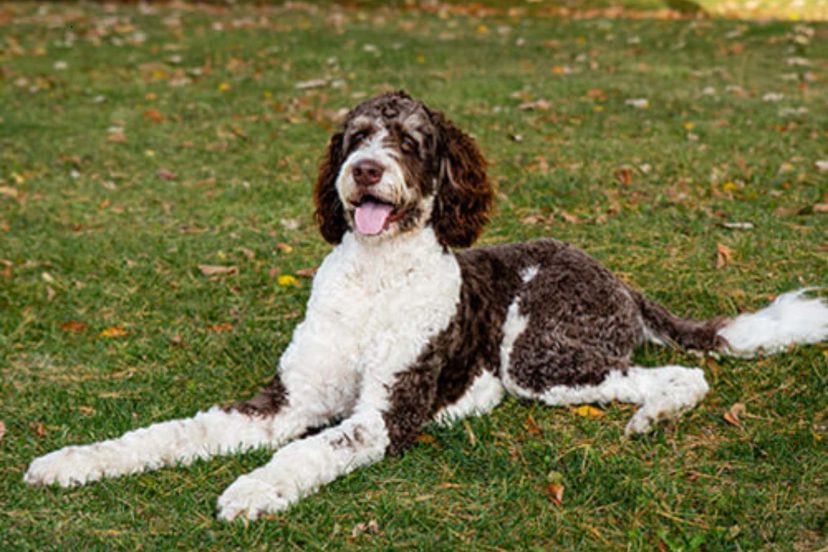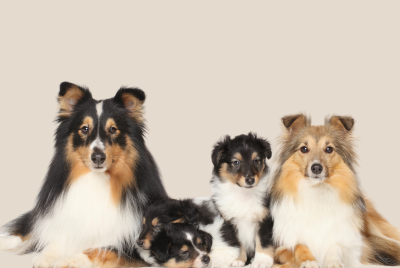Is Bernedoodle Temperament Suitable For Your Home?
Popular among many people, the bernedoodle temperament is friendly as it is a mixed-breed dog that possesses both an intelligent poodle and a loyal Bernese mountain dog. This particular breed is loved for its warmness, silliness, and gentle nature, making it a good choice for family pets and therapy dogs.
In this article, we will be discussing various aspects of the temperament of the bernedoodle; his playfulness, trainability, activity levels needed and how he interacts with children as well as other pet animals in the home. The gregarious disposition they display towards their families explains why bernedoodles are so much in demand today amongst hybrid dog breeds.
Playfulness
One of the most endearing aspects of the bernedoodle temperament is their playful, goofy nature. As a blend of two energetic and bright breeds, bernedoodles love to play and make their families laugh. They maintain a puppy-like silliness well into adulthood.
Bernedoodles enjoy playing games like fetch, tug of war, and chase. They’ll often invent their games by presenting a toy to initiate play or rolling around invitingly. It’s important to give bernedoodles plenty of opportunities to play every day. Interactive games will help satisfy their needs for both mental stimulation and physical activity.
Without sufficient playtime, bernedoodles may resort to destructive or hyperactive behavior out of boredom. Early socialization and training will help teach them appropriate ways to play gently, as their excitement can sometimes overwhelm smaller children or pets.
Overall though, the bernedoodle aims to please and will happily play for hours if given the chance. Their lighthearted approach to life brings joy and laughter to their families.
Trainability
Thanks to the poodle influence, bernedoodles are highly intelligent and eager to learn. They respond very well to positive reinforcement training methods using treats, praise, and play as rewards.
Bernedoodles often enjoy training sessions as a form of fun mental stimulation and bonding time with their owner. Their aim to please means they are motivated to learn new commands and tricks.
Obedience training is important for bernedoodles to learn good manners and appropriate behavior. Their energetic nature also benefits from activities like agility training as an engaging physical and mental outlet.
House training may require patience, as some bernedoodles may take a little longer to master this skill. Setting them up for success by using crate training and establishing a consistent schedule will help.
Bernedoodles are sensitive dogs that do not respond well to harsh corrections or punitive training methods. Training sessions should always be kept upbeat and rewarding for these affectionate pups.
With their combination of intelligence, eagerness to please, and sensitivity, bernedoodles are a highly trainable hybrid when positive reinforcement is used.
Activity Needs
While bernedoodles are not hyperactive, they do have fairly high exercise needs thanks to the influence of their Bernese mountain dog parent. Bernedoodles enjoy and benefit from 30-60 minutes of activity daily. Long walks, jogs, hikes, swimming, or fetch are great ways to meet their exercise needs.
Bernedoodles also appreciate having a fenced yard where they can play and burn off some of their energy. Mentally stimulating games, training sessions, and interactive toys will further help tire out their active minds. Puppies and adolescents, in particular, need plenty of outlets for their energy to prevent destructive chewing or hyperactivity.
Without proper exercise, bernedoodles may become restless or engage in unwanted behaviors. Bernedoodles prefer cooler weather and may become overheated in the summer months, so walks should take place during the cooler parts of the day.
Owners need to be prepared to provide their bernedoodle with consistent daily activity tailored to their age, health, and energy level. Meeting their needs for both mental engagement and physical exercise is key to having a happy, well-adjusted bernedoodle.
Interaction with Children and Other Pets
Bernedoodles tend to have wonderful temperaments for families with children. They are patient, playful, and affectionate with kids. It’s important to always supervise young children and dogs together, however, as dogs can get frustrated or accidentally knock over small children.
Socialization from a young age is key to ensuring bernedoodles develop good manners and learn to be gentle with children. Correctly introducing dogs and children and teaching children how to properly interact with dogs reduces the chances of problems arising.
Bernedoodles often get along very well with other pets too, especially if they have been raised together from puppyhood. Early socialization will help them develop good manners when meeting new dogs and pets as well.
Bernedoodles may sometimes chase small pets like cats due to their hunting instincts. However, they can learn to accept feline housemates with proper training and supervision. In general, bernedoodles thrive in busy, active households with lots of love and attention from their family.
Protectiveness
While bernedoodles are not typically used as guard dogs, they do tend to be watchful and some may exhibit mild protectiveness of their home and family. Early socialization and training will help prevent overprotective tendencies.
Bernedoodles may bark to alert their owners of anything unusual, but should not exhibit aggressive guarding behavior. They are not excessively suspicious of strangers either. In fact, bernedoodles are often trusting and friendly dogs. Some males may retain more of the Bernese mountain dog inclination to use their size and loud bark to ward off potential threats.
However, this protectiveness should never appear aggressive or dangerous. With their affectionate nature, most bernedoodles do not make good guard dogs. They’d much rather greet a new person with kisses than barks!
Owners should never encourage or enhance protective behaviors in their bernedoodles, as this could lead to aggression issues. With proper socialization and training, bernedoodles may be vigilant watchdogs but pose no threat.
Common Health Issues
Bernedoodles are generally healthy dogs, but the hybrid can be prone to certain health conditions. Some common issues to be aware of include:
Hip and Elbow Dysplasia: An inherited condition that leads to joint problems. Maintaining a healthy weight and proper exercise can help.
Allergies: Bernedoodles can inherit allergies and skin sensitivities from both parent breeds. Regular grooming and vet care helps manage allergic symptoms.
Eye Issues: Problems like progressive retinal atrophy, cataracts, and cherry eye occur in the breed. Annual eye exams by a vet are recommended.
Joint Issues: Some bernedoodles may develop painful conditions like arthritis as they age. Joint supplements, medication, weight management, exercise, and physical therapy can help relieve discomfort.
Bloat: Bernedoodles’ deep chests put them at risk for this life-threatening condition. Preventative measures like proper feeding techniques can reduce chances of bloat occurring.
Cancer: Bernedoodles may develop cancers like lymphoma and mast cell tumors. Catching any lumps or changes early maximizes treatment options.
Heart Disease: Both parent breeds are prone to genetic heart defects, so regular vet checkups are key. While bernedoodles are not immune to health problems, their risk can be minimized by getting them from responsible breeders who health test their breeding dogs. Keeping up with vet care, exercise, proper nutrition, and grooming also helps bernedoodles stay happy and healthy.
How Health Impacts Temperament
A bernedoodle’s health can have a big influence on their behavior and temperament. Dogs in pain or discomfort from conditions like arthritis, injuries, or dental disease may appear more irritable, withdrawn, or reactive.
Allergies that cause incessant itching can also negatively impact a dog’s quality of life and behavior. Illnesses like cancer, infections, and organ disease can make dogs feel unwell and affect their energy levels, appetite, and temperament.
Ensuring your bernedoodle maintains good physical health through vet care, grooming, parasite prevention, vaccines, and nutrition gives them their best chance at exhibiting their wonderful, happy temperament.
Staying active and maintaining a lean body weight also keeps their joints healthy and improves mood. Addressing any behavior changes in your bernedoodle with your vet helps identify potential underlying physical issues needing treatment.
While each dog has their unique personality, supporting your bernedoodle’s health goes a long way in allowing their best temperament to shine through.
Conclusion
A bernedoodle is loved because they are lively, desire to please, have a good nature and love family. Proper exercise, training, socialization and health care are important in keeping up the intelligence of the breed that is smart, gentle and fun loving known as bernedoodles.
They do best when they have lots of quality time with their owners doing things together or just playing. They form close relationships with their people and always want to be a loyal affectionate friend for life.
Though some potential health concerns can’t be underestimated generally robust dogs provided their needs are met. If an individual or family wants a loving and energetic dog that is active, then this is what the bernedoodle temperament offers.




